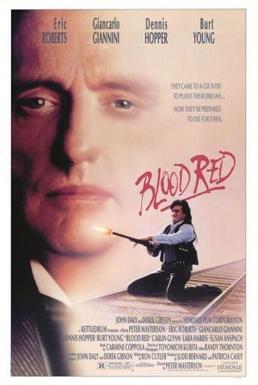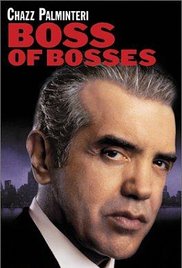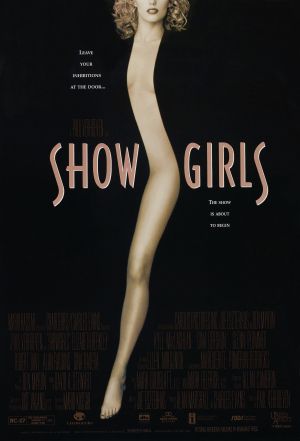Welcome to Late Night Retro Television Reviews, a feature where we review some of our favorite and least favorite shows of the past! On Thursdays, I will be reviewing Highway to Heaven, which aired on NBC from 1984 to 1989. The entire show is currently streaming on Tubi and several other services!
This week, Mark falls in love and Jonathan directs a movie.
Episode 1.10 “Help Wanted: Angel”
(Dir by Michael Landon, originally aired on November 21st, 1984)
This is a strange episode.
The first half of the episode plays out like almost a parody of Highway to Heaven. In fact, I would assume that it was a parody except for the fact that this was only the show’s tenth episode and that’s a bit early for any show to start intentionally parodying itself.
Still in Hollywood, Jonathan and Mark come across a sign that has been posted by someone named Joey. “Angels Needed,” the sign says. The sign has an address that turns out to be a community center, one that is populated by a mix of cranky retired people and young criminals. The center’s maintenance worker is a developmentally challenged young man named Joey Smalls (Dennis Fimple). Joey put up his sign because he wants an angel to help an elderly screenwriter named Martin Lamm (John Lormer). Martin has written a script about a magician and he wants to not only make the film but also fill the cast with people from the neighborhood.
No sooner have Mark and Jonathan stepped into the community center and met Joey and Martin then they are suddenly joined by a man named Petros (Al Ruscio). Petros speaks in a thick Greek accent and he says that he has also seen Joey’s sign, he has read Martin’s script, and he wants to produce the movie. And he wants Jonathan to direct it and Mark to play the role of a sea captain who falls in love with a woman who has “a past,” as Petros puts it. As the woman, they cast Stella (Stella Stevens), who actually does have a past.
We then jump forward several weeks. Jonathan is directing the film, even though he doesn’t seem to have a crew and we don’t actually see any cameras filming anything. Joey has impressed everyone with the sincerity of his acting and he is now friends with former gang member, Chewy (Randy Vasquez). Mark, meanwhile, is falling in love with Stella.
So, that’s the first half of the episode. It’s all very broadly acted and the dialogue frequently crosses the line from sentimental to mawkish. I have to admit that I rolled my eyes more than a few times because it all felt so overdone.
But then, the second half of the episode opens with Petros approaching Jonathan. Jonathan asks Petros about his past. Petros says that he was born in Galilee and that, before starting his current line of work, he was a fisherman. Jonathan realizes that Petros is actually St. Peter and he’s been sent down to help Jonathan out with his mission. It turns out that Jonathan’s mission is not really about Joey or Martin. Instead, it’s about Stella, who is going to die and it’s about Mark, who is about to lose the woman that he’s fallen in love with. Realizing that Stella’s character is also going to die in the movie that he’s supposedly directing, Jonathan asks if they can just rewrite the script but Peter tells him that they can’t. What is going to happen is going to happen.
And it does happen, though not before Mark asks Stella to marry him and Stella says yes. When she finds out that she’s ill, Stella leaves Mark a note saying that she’s dumping him for an ex-boyfriend. At first, Mark is angry but, with Jonathan’s help, he realizes the truth. Mark finds Stella waiting for him on the beach where they filmed their scenes for the movie and they get married as the ocean crashes behind them. And then, off-screen, Stella dies.
And I went from rolling my eyes to actually wiping away tears because, as broad and kind of annoying as the first half of the episode was, the second half was sensitively directed by Michael Landon and sincerely acted by both Victor French and Stella Stevens. If the first half felt like a parody, the second half was a reminder of why this show still remains popular on so many streaming platforms. At its best, there was an unapologetic earnestness to Highway to Heaven. This was a show that said that it was okay to cry and to have emotions and to care about people. This was a strange episode but, ultimately, a surprisingly effective one.

 The time is the 1890s. The place is California. Sicilian immigrant Sebastian Collogero (Giancarlo Giannini) has just been sworn in as an American citizen and owns his own vineyard. When Irish immigrant William Bradford Berrigan (Dennis Hopper) demands that Sebastian give up his land so Berrigan run a railroad through it, Sebastian refuses. Berrigan hires a group of thugs led by Andrews (Burt Young) to make Sebastian see the error of his ways. When Sebastian ends up dead, his wayward son, Marco (Eric Roberts), takes up arms and seeks revenge.
The time is the 1890s. The place is California. Sicilian immigrant Sebastian Collogero (Giancarlo Giannini) has just been sworn in as an American citizen and owns his own vineyard. When Irish immigrant William Bradford Berrigan (Dennis Hopper) demands that Sebastian give up his land so Berrigan run a railroad through it, Sebastian refuses. Berrigan hires a group of thugs led by Andrews (Burt Young) to make Sebastian see the error of his ways. When Sebastian ends up dead, his wayward son, Marco (Eric Roberts), takes up arms and seeks revenge. Who was the boss of bosses? According to this movie, he was Paul Castellano. A cousin-by-marriage to the notorious crime boss Carlo Gambino, Castellano grew up in New York City and first became a made man in the 1930s. After four decades of loyal service, Castellano succeeded Carlo as the boss of the Gambino Crime Family. As portrayed in this movie, Castellano attempted to keep the Gambinos out of the drug trade and tried to steer both his biological and his crime family into legitimate businesses. However, not everyone appreciated Castellano’s vision of the future and, in 1985, he was assassinated on the orders of his eventual successor, John Gotti.
Who was the boss of bosses? According to this movie, he was Paul Castellano. A cousin-by-marriage to the notorious crime boss Carlo Gambino, Castellano grew up in New York City and first became a made man in the 1930s. After four decades of loyal service, Castellano succeeded Carlo as the boss of the Gambino Crime Family. As portrayed in this movie, Castellano attempted to keep the Gambinos out of the drug trade and tried to steer both his biological and his crime family into legitimate businesses. However, not everyone appreciated Castellano’s vision of the future and, in 1985, he was assassinated on the orders of his eventual successor, John Gotti.